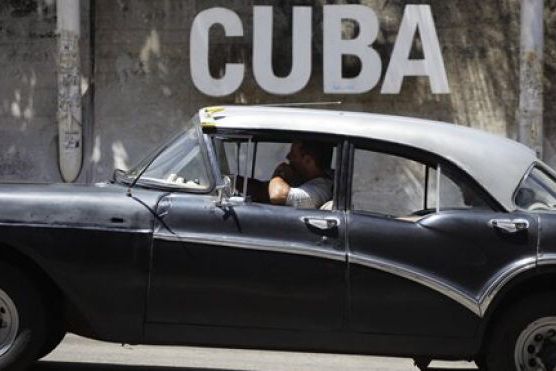Months after the First Family made their trip to Cuba, I found myself visiting the island on a culturally educational tour. Days after I returned home, JetBlue Flight 387 arrived in the city of Santa Clara as the first direct commercial flight between the US and Cuba in over half a century.
A historical reconciliation was playing out and I had the opportunity to witness its effects firsthand. Before I describe my visit, it is important to provide some context. A few highlights: Cuban-US relations began improving in 2009 with the easing of travel restrictions. In July 2015 the American embassy reopened in Havana. This year President Obama made a historic and remarkably successful trip to Cuba.
As Secretary of State, Hillary Clinton worked with the Obama administration to build a more productive relationship and move past an ineffective policy of hostility. Her efforts to advance American interests in Cuba were not designed at the expense of the Cuban people. As diplomacy progressed, Clinton insisted that the Cuban government should "improve opportunities for the Cuban people."
Secretary Clinton also showed a fundamental understanding that US antagonism only serves to hurt the Cuban people and strengthens the regime's grip on power. Clinton famously observed that, "the embargo is Castro's best friend." Having been to the island it is hard to argue with her logic or her choice to update American foreign policy towards Cuba. When I emerged from José Martí International Airport, I was greeted by a sight that was, as expected, incredible. Brightly colored 1950's Fords crowded outside the terminal.
I should note that not all the anachronisms are as charming as mint condition convertibles. The airport itself was dilapidated and not even the competent and courteous employees could mask the fact that it was not built for modern travel. I would soon learn that crumbling infrastructure and enterprising Cubans go hand in hand. While in Cuba I encountered some of the brightest and warmest individuals I have ever met.
There was the countryside farmer who was using his home as accommodation for tourists without ever having heard of Airbnb. There was the car salesman restoring vehicles until they looked as if they had just emerged from a Detroit factory circa 1950, and there were the ordinary Cuban people going about their lives stuck in an obsolete system and suffering from an outdated enmity but smiling all the while.
One of my most revealing glimpses into Cuban-American relations was a conversation with a Havana artist. When we arrived at his elevator-less building, he sent us his key down, with typical Cuban ingenuity, using a fishing line. After climbing six flights of stairs we had the chance to see his colorful and (despite his denials) highly political art. The work that caught my eye was a picture of a bathing suit clad President Obama with a beautiful woman, who he appears to be rescuing, draped over his shoulder. The artist explained that the woman in the picture represents Cuba.
The idea that Obama is a superhero saving Cuba seems to be a popular one among the Cuban people. When I told people I was visiting from the United States, I was always greeted with a friendly smile and an enthusiastic handshake. Some of the credit for this treatment must go to the Obama administration and its diplomacy.
After hearing I was from the US one shopkeeper stopped me and earnestly intoned, "¡Obama es numero uno!" He grinned and held up his index finger to emphasize the point.
I spoke with a former Cuban diplomat who expressed the same sentiment though from a slightly different perspective. He explained that he was "depressed" by the Obama-Clinton engineered policy towards Cuba because these American leaders seemed to have a greater understanding of the Cuban people than the Cuban government itself. After having spent a few days in Cuba, this statement did not surprise me. It seems to me that there is fertile ground for an excellent Cuban-American relationship but until now our leaders have not been astute enough to cultivate it. The Cuban people have a genuine affection and cultural affinity towards the United States. After all the American author Ernest Hemingway remains one of Cuba's most beloved celebrities.
Whenever I spoke with Cubans they would reassure me that they were not an anti-American country. They simply did not agree with some of the American government's policies. Still I could not help noticing a feeling of cautious optimism that change may finally be coming to the island.
Cubans and Americans deserve a leader who will capitalize on this feeling and not revert to a toxic approach. Hillary Clinton has the desire, knowledge, and experience to make this much needed change a reality.
###
September 15, 2016
